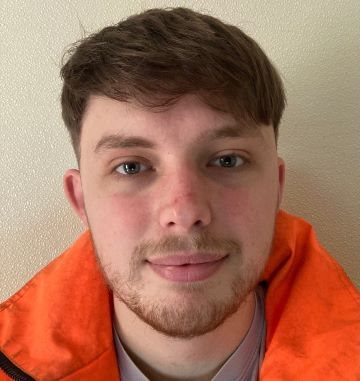

Insights What’s it like being autistic at Atkins?


"If you're looking to work for Atkins, know that everyone is ready to pitch in and help you grow, whether you're autistic or not."
Interested? Find out more about life at AtkinsRéalis
Sign up to receive the latest content tailored to your interests
Our articles

Preview
Middle EastContent type
BlogsPublish date
04/26/2024
Summary
By implementing reforms in the public sector and wider society, the KSA’s Vision 2030 has greatly improved government efficiency, bringing about new growth and investment opportunities. What is Visio
.jpg)
Preview
IndiaContent type
BlogsPublish date
04/25/2024
Summary
In the ever-evolving landscape of professional endeavours, finding a workplace that feels like your safe space is a rare gem. AtkinsRealis stands as a beacon in this regard, where talents not only
.jpg)
Preview
IndiaContent type
BlogsPublish date
04/25/2024
Summary
In the ever-evolving landscape of urban drainage modelling, AtkinsRéalis stands as the leaders with large highly skilled urban drainage modellers. Our focus on serving our clients around urban dra

Preview
CanadaContent type
BlogsPublish date
04/25/2024
Summary
Since the start of the COVID-19 pandemic, the skill of managing constantly changing environments has become more and more important. New construction project management software offers innovativ
+(1).jpg)
Preview
AustraliaContent type
BlogsPublish date
04/24/2024
Summary
In a momentous shift, SNC-Lavalin has transitioned to AtkinsRéalis, marking a new era of innovation, collaboration, and excellence in engineering consultancy. With this rebrand comes a fresh persp
.jpg)
Preview
IndiaContent type
BlogsPublish date
04/23/2024
Summary
As Mumbai continues to evolve and expand, the demand for sustainable infrastructure and cutting-edge technology has never been more pressing. At the forefront of this transformative journey is Atk

Preview
EuropeContent type
BlogsPublish date
04/22/2024
Summary
Hi there! I'm Paul, a civil engineer with over 25 years of experience specializing in networks and drainage engineering. My role at AtkinsRéalis spans managing projects, directing major initia

by
Shailaja Mantha

Preview
EuropeContent type
BlogsPublish date
04/22/2024
Summary
Meet Paul, a talented civil engineer in water management whose career journey is as inspiring as impressive. Starting at AtkinsRéalis, fresh out of university in 1997, Paul quickly distinguish

by
Shailaja Mantha

Preview
Middle EastContent type
BlogsPublish date
04/18/2024
Summary
In the vast expanse of the Saudi Arabian landscape, you’ll find a beacon of innovation, a vision for a better, greener tomorrow. NEOM sits in the heart of the Tabuk province and isn’t just anothe

Preview
AsiaContent type
BlogsPublish date
04/18/2024
Summary
As a global metropolis, Hong Kong has long been a fantastic place to be a civil engineer. With world-class infrastructure all around, effective civil engineers have many opportunities to be a
.jpg)
Preview
AustraliaContent type
BlogsPublish date
04/18/2024
Summary
In January 2024, Srijana embarked on a new chapter in her engineering career, joining AtkinsRealis as a Chartered Structural Engineer. With six years of experience on a wide variety of projects, Sr

Preview
EuropeContent type
BlogsPublish date
04/17/2024
Summary
I'm Dean, Regional Director at AtkinsRéalis since July 2023. I'm a Chartered Quantity Surveyor in the Projects & Programme Services team with director-level experience across various sectors,

by
Shailaja Mantha

AtkinsRéalis
Equality, diversity and inclusion
We’re devoted to growing the diversity of our people, promoting an inclusive culture, providing everyone with an equal voice because simply put, it’s the right thing to do. Click to learn more.
Find out more


